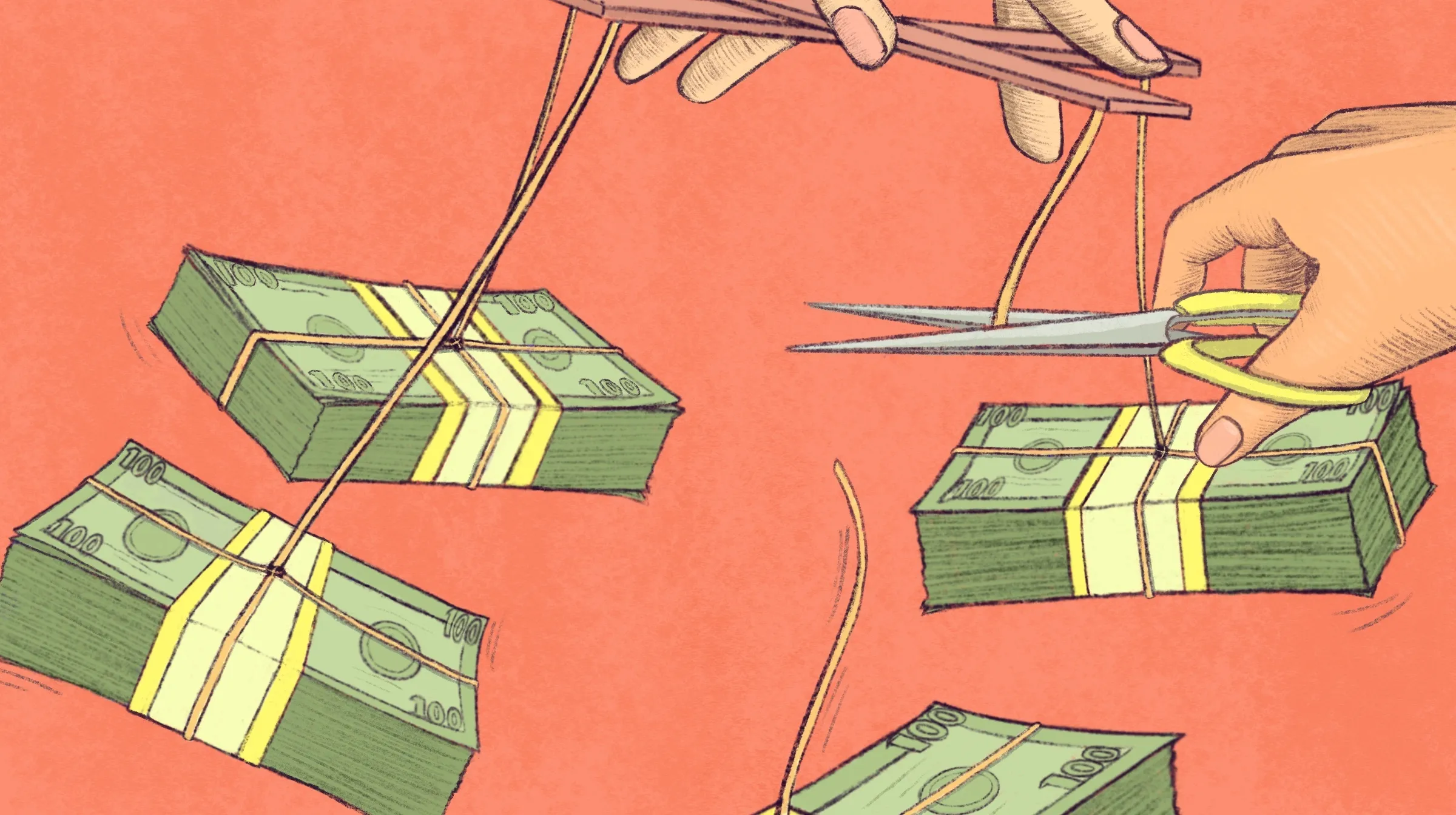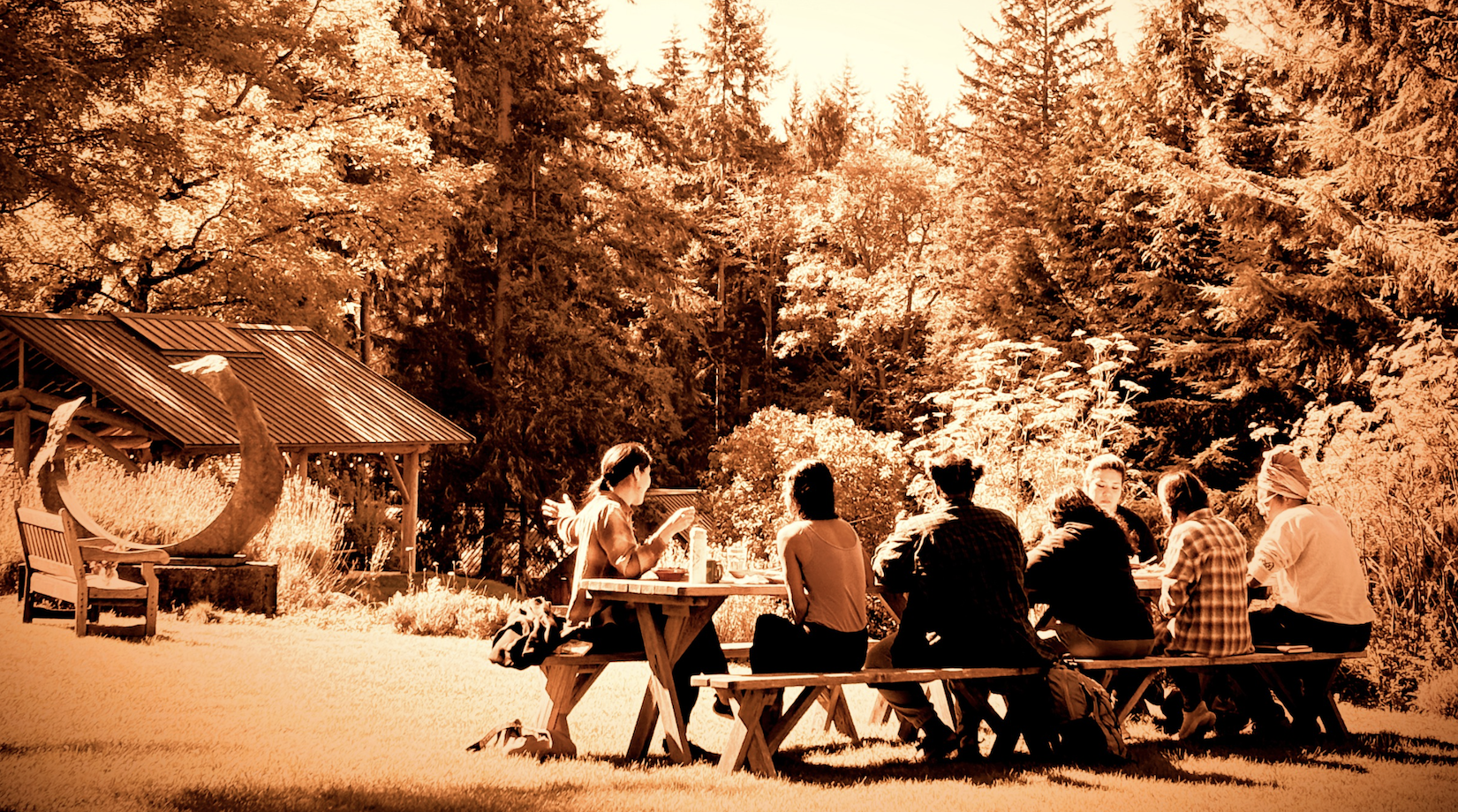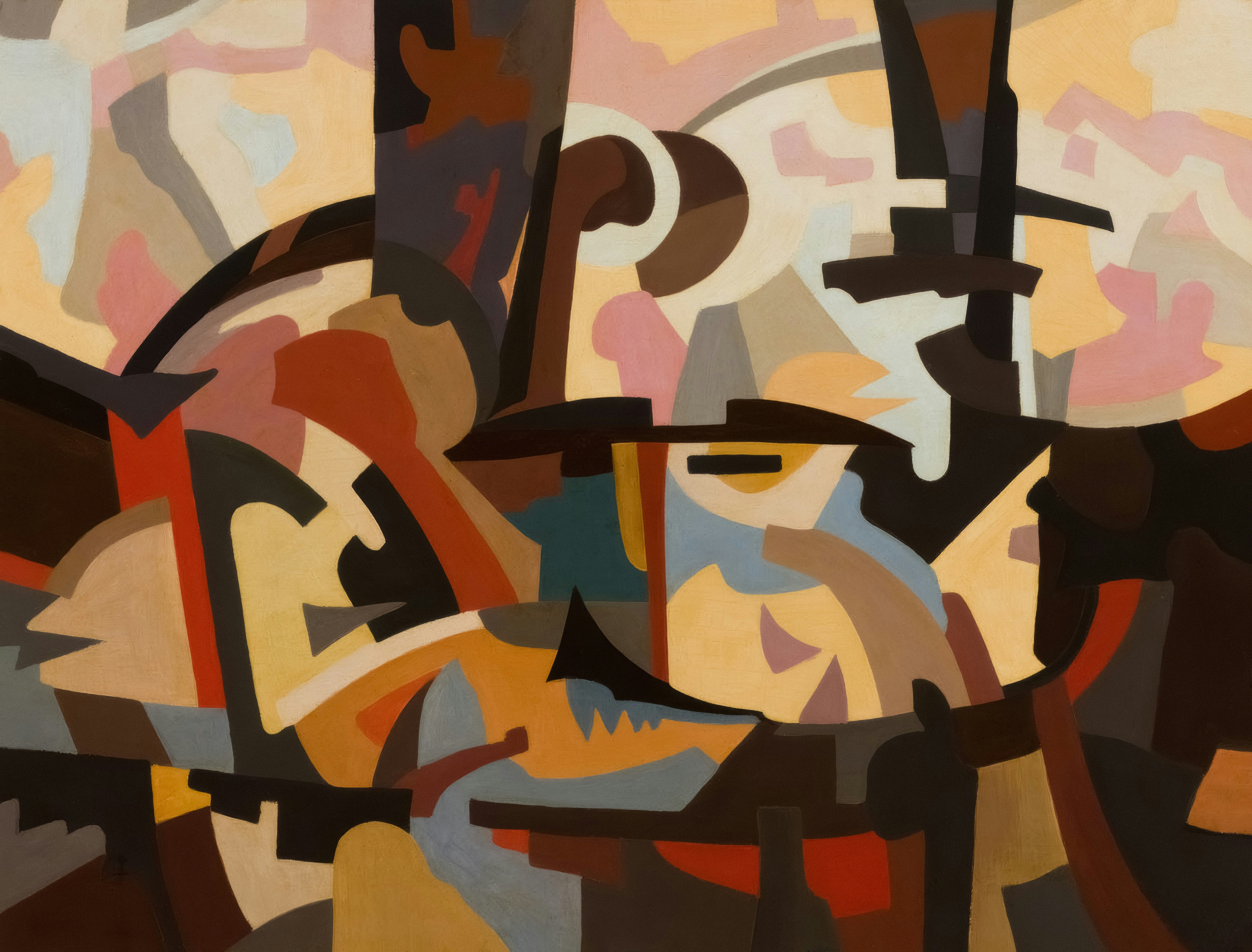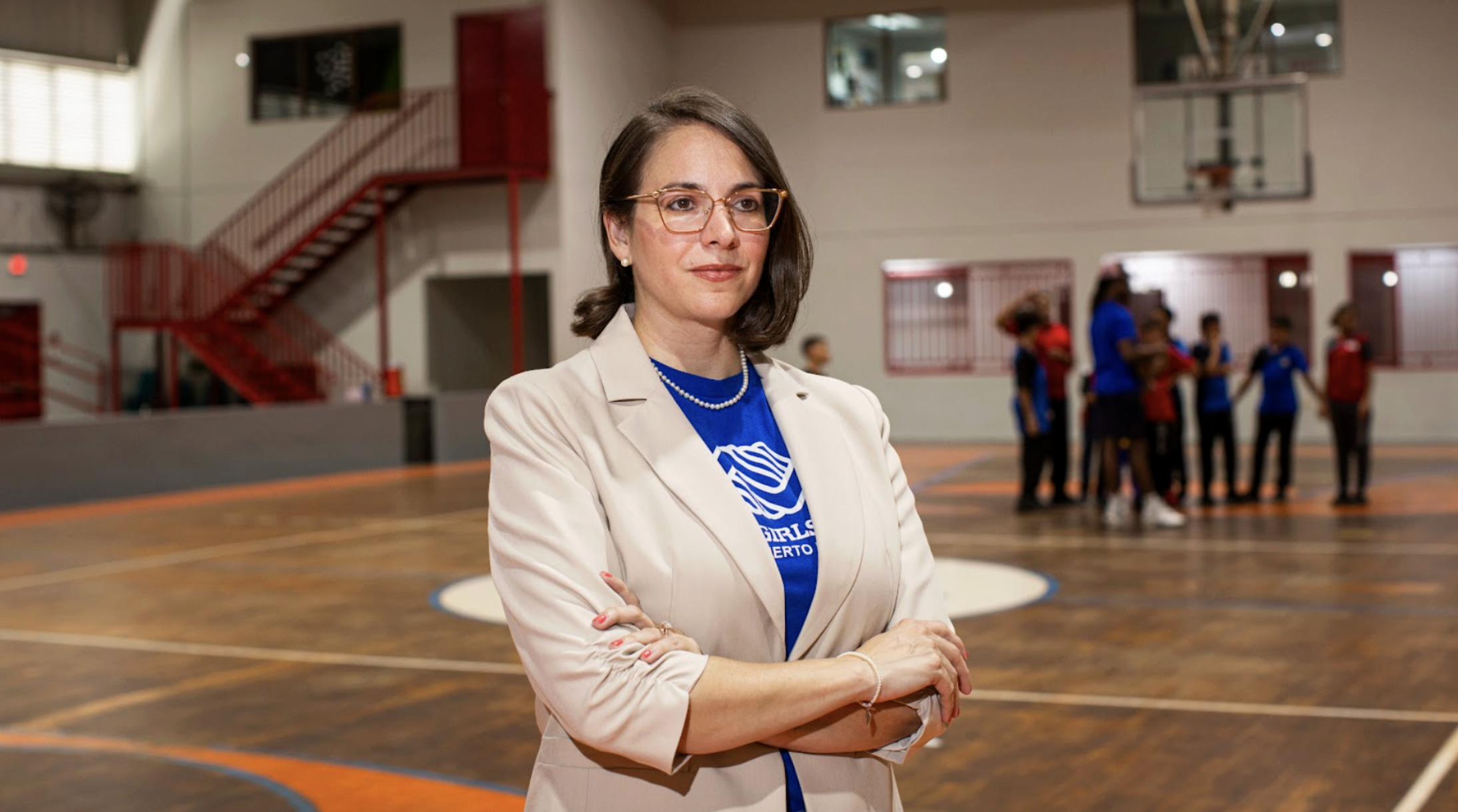Before Marlene Engelhorn made international news announcing her plan to give away $27 million through a randomly-selected citizens' assembly, she had an unlikely title: intern.
Engelhorn inherited a large fortune in 2022, and has been outspoken for years about wealth inequality in her native Austria, which abolished inheritance tax in 2008. Along the way, she worked as an intern for the Guerilla Foundation, which is where she came up with the idea to distribute her money in a creative way.
Her project Guter Rat, or the "Good Council for Redistribution", is an experiment in giving that pulls from both participatory grantmaking and citizens' assemblies: a group of representative Austrian citizens will deliberate and collectively decide how to spend $27 million to fight wealth inequality.
In January, the Guter Rat team sent 10,000 invitations to a random selection of Austrian citizens, asking if they would like to be part of the council. They received 1,424 responses, which their partner, FORESIGHT Institute, statistically narrowed down to 50 people over the age of 16. We caught up with Guter Rat's project lead, Alexandra Jing-Yi Wang, a few days before the first meeting of the council.
I'll start with a question I’m sure you get a lot. The stated goal of the council is to implement concrete ideas to address wealth distribution in Austria. Do you have any sense of how the Council will approach that goal – for instance through direct payments to people, or by funding NGOs, or putting money behind advocacy movements?
That is certainly the most compelling question! The answer is that we don’t know. It’s really a black box. We have 50 individuals coming together from very different backgrounds. They represent the Austrian population, which means they will have very different perspectives on wealth and its distribution – if the distribution is fair or not.
There will be people from the left, right and middle of the political spectrum. There will be people who think the current system is amazing, and people who think the system is broken and want to see things like a wealth tax or an inheritance tax. This is what democracy looks like – it’s about different people having different opinions on different things.
I can imagine these people will come into the room already having ideas. They will have spoken with their friends and family, and some will come in with specific solutions in mind. But we really don’t know, and we don’t want to push them in any specific direction. This is all about that democratic value system that I feel like we are losing everywhere in the world – this idea that everyone can and should have a voice.
Okay – so how will the deliberation process work?
We are [meeting for the first time next week], so we will develop the process in real time as we get to know the group. But we have some general guidelines.
We have a team of facilitators guiding the Council throughout the process, some of whom have decades of experience with citizens’ assemblies. For the first few sessions especially, we will invite scientific and field experts, including economists, to share their expertise on wealth distribution. This is important because the council members have to have a shared understanding of what we are actually talking about, especially when it comes to the dimensions of wealth.
Then we will ask the Council members to deliberate. Some of the time we’ll meet as a large group, and at other times there will be breakout groups. The facilitators will be using different types of facilitating methods throughout the process. One is “systemic consensing”, which means that each proposal that is made is measured by resistance. Thus, the proposal or proposals with the least resistance is chosen.
The other is “consent”, which means that anyone can voice a concern or grave objection towards a proposal. If there are objections, the group must find a way to improve their proposal. Objections prevent proposals from becoming agreements, but concerns do not.
I read that you are trying to reduce barriers for participants, for instance offering childcare and interpreters. How are you approaching that kind of support?
Citizens’ assemblies, and these kinds of forums where people come together, are normally, I’m afraid, reserved for people who have the resources and privilege – to just go away for a weekend, or however long, and just deliberate.
The 50 members are representative of the Austrian population, and that means that we have a few people who cannot speak German at all, or only to an extent where more difficult topics are too hard to understand or talk about. So we will have translators for them, offering support without disturbing the larger process.
For us, it was so important that we could offer a framework where all people felt welcomed - starting with the invitation to register for the Good Council. We wanted to say: If you don’t speak German, please register. If you have kids to take care of, please register and we’ll cover the costs of your existing childcare or provide one in Salzburg. If you have a disability, please register and we will make sure you can participate without having to deal with barriers of whatever sort. If you have certain dietary requirements, we will abide by them.
We have done everything possible to make this council accessible for everyone.
Austria was home to one of the largest citizens’ assemblies focused on climate change, the Klimarat. Were you inspired by that?
I believe Marlene was inspired by it, yes. More than 80 people came together to develop 97 ideas on how to fight climate change. But the government did nothing with these recommendations.
And I think that people were and are very discouraged by this because so many people had put so much time and effort into the project and quite frankly, did not receive the appreciation they should have gotten.
That’s why Marlene is backing the council with 25 million euros: because she wants the council members to have the real opportunity of actually being able to implement the ideas that they developed. We have three facilitators on our team that were part of Klimarat’s facilitating team, so that’s great because they have insight on what went well and what did not during the process.
What else do you hope to accomplish with this project?
This kind of citizens’ assembly has never been done before. So on the one hand, I’m proud of what we’re doing, and I hope that our project will be a lighthouse project for other people.
On the other hand, this project definitely does not replace the need for a new, reformed tax system, which allowed Marlene to come into this kind of wealth in the first place. You know, no one needs 25 million euros. It's not something that anyone needs to live a good life in my opinion. Especially when the concentration of wealth always means poverty on the other end of the stick. So when people say “Are all rich people supposed to do citizens’ assemblies to decide how to give away their money?” I’ll say “Well, it’s a first step, but underneath all this is a structural problem that we’re trying to talk about.”
We are trying to open up the debate on money and wealth, which is often a taboo topic that nobody likes to talk about. But it’s important to talk about where money comes from, why some people profit off the current system and others don’t. We hope we can contribute to the debate – not only in Austria but worldwide, because this is an issue that is certainly not confined to Austria’s borders.
Photo credit: Hannah Fasching

.webp)









.webp)

.webp)
%20(1280%20x%20720%20px)%20(41)%202.webp)
%20(1280%20x%20720%20px)%20(38).webp)
%20(1280%20x%20720%20px)%20(31).png)


%20(1280%20x%20720%20px).webp)

















.webp)
.gif)

.webp)


.gif)













